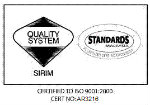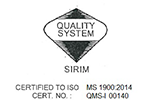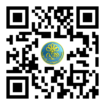Equality And The Next Revolution
The National Transformation 2050 Plan (TN50) is the government of Malaysia’s vision to position the country among the top 20 nations in the world by 2050. The initiative will span three decades beginning from 2020.
In the context of development planning, a 30-year time frame for any vision to materialise in full is a long term process. However, such is not the case in technology. Vast innovations and technological advancement will emerge within the period as they progress at an exponential rate.
Remarkable technological changes which continuously happen within different fields will bring various profound impacts on how we live our daily lives and this includes economic affairs.
As we are now on the verge of Industry 4.0 and the Fourth Industrial Revolution (4IR), the change will be more drastic and revolutionary. The former aims at revolutionising the industry and the latter has a conceptual bigger picture on how technology change the way we live, work and relate to one another. By looking at the end result of each, we may regard the Industry 4.0 as a subset of the Fourth Industrial Revolution.
Whether it is Industry 4.0 or 4IR, both ride on technology. No one can argue that technology has not made a huge impact on our socio-economic environment. In general, technology deployment helps increase productivity, efficiency and pleasure in our personal lives.
For both producers and business communities, this is evident from how technological developments enable them to become less labour-intensive which will eventually translate into cost savings on wages and operations.
In 2016, Klaus Schwab made a comparison between Detroit in 1990—which was best known as the centre of the US automobile industry, and Silicon Valley in 2014—the home to many of the world’s high-tech corporations. He compared the three biggest companies of each city in terms of their market capitalisation, revenues and number of employees. He found that in 1990, the three biggest companies in Detroit had a market capitalisation of $36 billion, revenues of $250 billion and 1.2 million employees. In 2014, the three biggest companies in Silicon Valley with considerably higher market capitalisation ($1.09 trillion) only needed to hire 137,000 employees to generate roughly the same revenues ($247 billion).
For some economists, automation and displacement of workers especially those who are low-skilled and low-educated in technology is a factor that might exacerbate the gap between returns to capital and returns to labour. This is owing to the fact that those with capital who are also the beneficiaries of innovation i.e. business owners, shareholders and investors will amass more of it. As a result, it gives rise to a serious income gap and the issue of inequality.
Although technological change comes with an inherent trait i.e. disruptive, we should not regard this as a hindrance to reject it for it has been the key driver in the development of human civilisation. Nevertheless, at the same time, we should also be prepared for its potential disruptive effects. This will ensure technological opportunities and outcome will result in social inclusion for every member of the society.
In his book Falsafah Asas TN50, Datuk Seri Mohd Najib Tun Abdul Razak states that maqasid al-shariah (objectives of shariah) will serve as the fundamental model and key principle of the vision he has laid out for the country.
There are five primary objectives of shariah and one of the concerns is protection of wealth (hifz al-mal) that can also be associated with Islamic economics. According to Ibn Ashur (1879–1973), there are five objectives of the shariah concerning all kinds of economic wealth and one of which is equity and justice (‘adl).
In Islam, an economy is well functioning if the concept of equity and justice are well operationalised and strictly adhere to shariah principles. In general, the concept of equity and justice in Islamic economics can be summarised under several headings such as justice and equity in wealth distribution; provision of basic needs to the under privileged groups in society; and protection against all forms of exploitation and denial of rightful rights.
As an ad-deen or way of life, Islam recognises that every individual is born with varying degrees of mental faculty and physical ability. Similarly, their living environment and family background are also different from one another. Such differences do not allow the existence of economic equality in the sense of equal economic means and wealth possession. As a matter of fact, this is part of the Divine scheme. In this regard, Allah says to the effect in surah al-Nahl verse 71: “And Allah has favoured some of you over others in provision. But those who were favoured would not hand over their provision to those whom their right hands possess so they would be equal to them therein. Then is it the favour of Allah they reject?”
According to Islam, the differences in wealth is part of Allah’s test and trial to see whether His servants are thankful or ungrateful; patient or impatient in good or bad circumstances. To promote social equality, Islam encourages social cohesion and cooperation within the communities. At the same time, every individual in the community should be given equal opportunity to improve themselves especially through learning and the education process. Indeed, education is the key to success and it plays an important role in the development of a country.
In this regard, the Malaysian government has made a right direction by rebranding all Technical and Vocational Education Training (TVET) institutions in Malaysia as TVET Malaysia and placing them under the Ministry of Human Resources. Besides, it has also taken various approaches to help boost interest among students in Science, Technology, Engineering and Mathematics (STEM) in the country. The government’s emphasis on TVET and STEM is basically to ensure Malaysia has enough high-skilled human resources who can contribute in more meaningful capacities in our quest to position Malaysia among the top 20 nations by 2050. More importantly, the moves will give a level playing field to all citizenry especially the youths to embrace challenges and economic opportunities brought about by the Industry 4.0 and 4IR.




